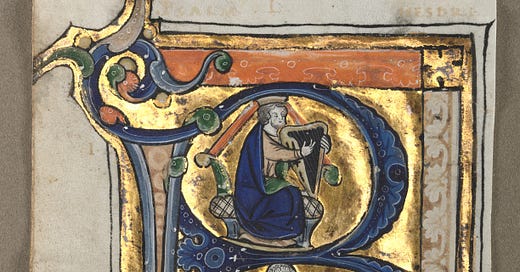When the lectionary lops off the hard bits of scripture
Psalm 139, ugly feelings, and the God who transforms
Gentle reader,
I’m thinking about the parts of scripture we don’t read.
I love a lectionary (a schedule for reading the scriptures in church), and I’m all in on the idea that it can be a good thing for pastors to have the scriptures chosen for them, rather than picking and choosing for themselves (though there are times which call for the latter, of cour…
Keep reading with a 7-day free trial
Subscribe to Church Blogmatics by Beth Felker Jones to keep reading this post and get 7 days of free access to the full post archives.





